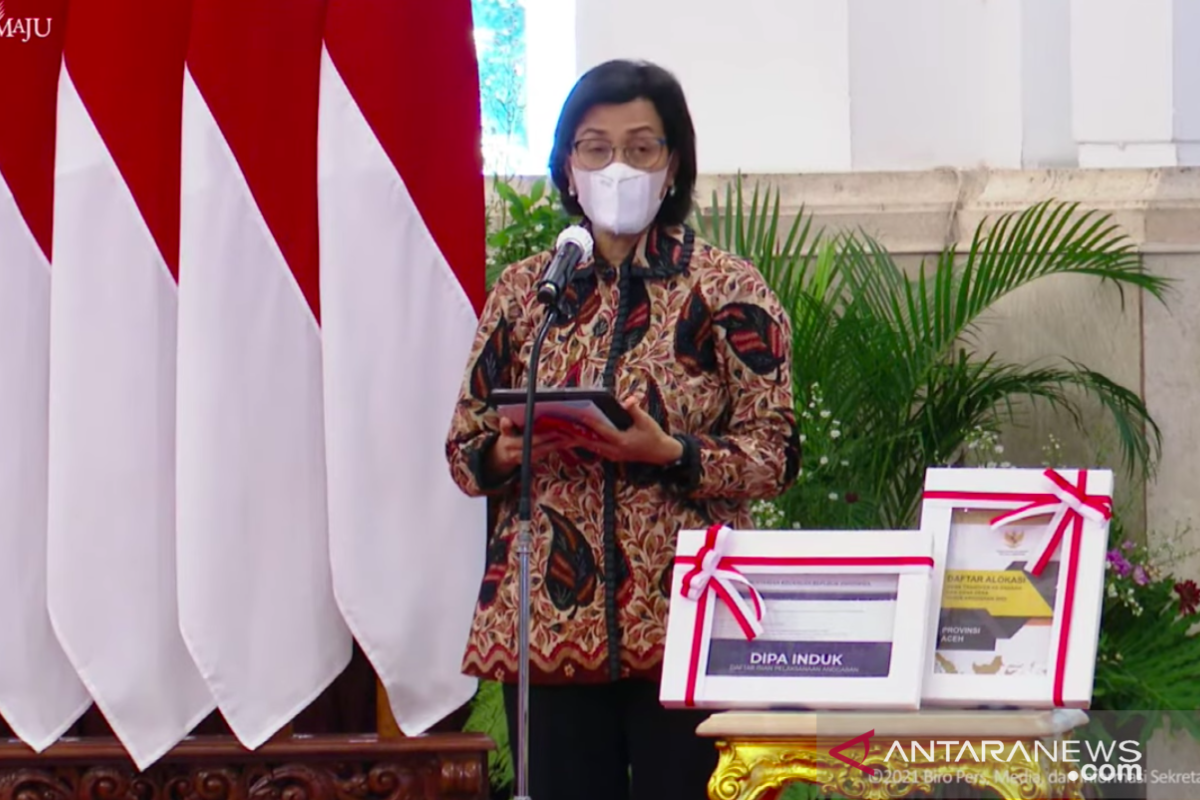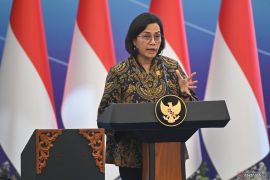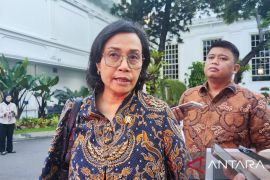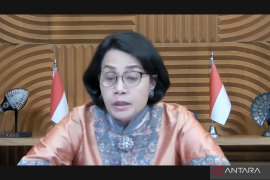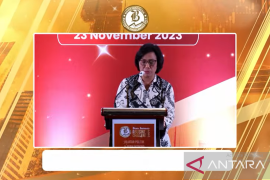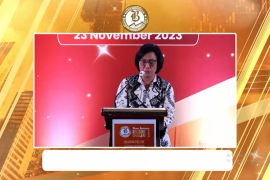The new risks must be managed so as not to disrupt the pace of economic recovery and structural reforms, she said at the State Palace, here on Monday during the submission of the budget execution lists (DIPA) and the list of transfer allocations to regions and village funds in 2022.
"The economic recovery in 2022 will be accompanied by the emergence of new risks that must be managed, such as commodity price volatility; inflationary pressures and the implications of rising interest rates in developed countries, especially the United States; China's economic rebalancing; as well as supply chain disruptions and geopolitical dynamics," she said.
Related news: Indonesia to bring up carbon emission issue at G20: minister
According to Indrawati, global and domestic economic recovery in 2022 will still remain uneven and uncertain. This is mainly due to the dynamics of the COVID-19 pandemic, which continues to be overshadowed by the emergence of new variants of the coronavirus, such as the B.1.1.529, or Omicron, variant.
She expected that the handling of the spread of the COVID-19, which proved effective some time ago, could be a strategy for Indonesia to prevent the transmission of new variants. This must be accompanied by the acceleration of COVID-19 vaccinations to create community immunity so that economic activities can resume, she added.
"The success of the Indonesian government in controlling the Delta variant and maintaining vigilance and discipline in health protocols is expected to be a strong provision in dealing with the new threat of the new Omicron variant," the Finance Minister said.
Related news: Indonesian govt projects 16.3-percent growth in state revenue in 2021
Regarding the 2022 State Budget (APBN), she emphasized that the government's fiscal instruments are still expansive and accommodate counter-cyclical policies, but still pay attention to risks, and prioritize fiscal sustainability in the medium and long term.
The government is targeting a State Budget deficit of 4.85 percent of the gross domestic product, or Rp868 trillion, in 2022, she noted. The deficit is narrower compared to the 2021 outlook of 5.2–5.4 percent of the GDP.
The APBN deficit will result from the ceiling on state revenue of Rp1,846.1 trillion and state expenditure of Rp2,714.2 trillion, she said. With this fiscal posture, the government is targeting economic growth of 5.2 percent in 2022, compared to the outlook for 2021, which is pegged at 3.5–4 percent.
Related news: Omicron variant spreads quickly, need to up vigilance: expert
Related news: Gov't move to limit entry of foreign nationals appropriate: MPR
Translator: Indra A, Azis Kurmala
Editor: Fardah Assegaf
Copyright © ANTARA 2021
